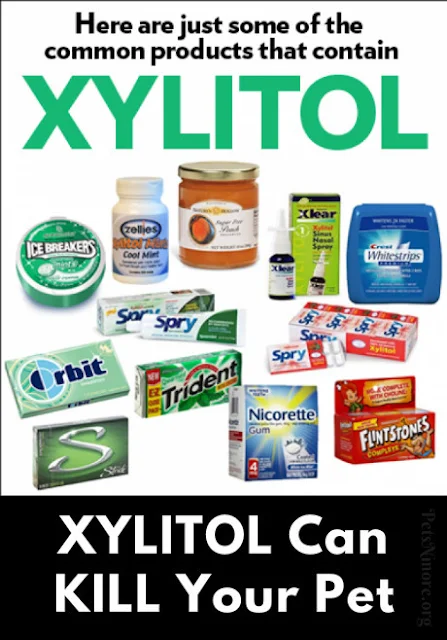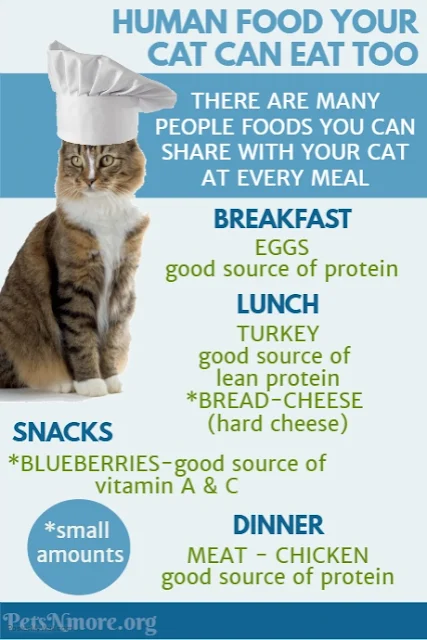Nutritional experts have put together a list of the top toxic people foods to avoid feeding your pets.
Avocado
Apricot, Cherry, Peach Pits, Almonds and Apple Seeds
All of the above contain cyanogenic glycosides which will result in cyanide poisoning.This interferes with the ability of the blood to release oxygen into the tissues, so the cat effectively suffocates while it's blood is full of oxygen.
Bones From Fish and Chicken
These bones can cause obstruction or laceration of the pets digestive system. Cooked bones can splinter & cause an obstruction, therefore they should be avoided. Feeding your dog or cat raw bones may seem like a natural and healthy option that might occur if your pet lived in the wild.
However, this can be very dangerous for a domestic dogs and cats, who might choke on bones, or sustain a grave injury should the bone splinter and become lodged in or puncture your pets digestive tract.
Large bones are suitable for dogs...just keep a watchful eye that nothing gets stuck in your dogs throat.
Canned Tuna (For Human Consumption)
This is another food which is fine to feed as an occasional treat, but mustn't be fed regularly, as it can lead to a condition known as Steatitis or Yellow Fat Disease.
Fed regularly, it can cause malnutrition, since it lacks proper feline nutrients, including taurine. Also, it can contain mercury, which can be detrimental to your cats health.
Fed regularly, it can cause malnutrition, since it lacks proper feline nutrients, including taurine. Also, it can contain mercury, which can be detrimental to your cats health.
Citrus
Toxic to Dogs, Cats and to Horses - Toxic Principles are Essential oils and psoralens. Symptoms are vomiting, diarrhea, depression and potential photosensitivity. May cause vomiting in cats.
Chocolate, Coffee and Caffeine
Humans continue to drink and use more and more caffeine, making pets more frequently exposed to this dangerous chemical. There are several sources of caffeine in the house: coffee, coffee grounds, tea, soda, energy drinks, weightlifter supplements, OTC pills (e.g., NoDoz), and diet pills.
Theobromine, a cousin chemical to caffeine is also found chocolate. Dogs and cats appear to be more sensitive to the effects of caffeine than people. While 1-2 laps of coffee, tea or soda will not contain enough caffeine to cause poisoning in most pets, the ingestion of moderate amounts of coffee grounds, tea bags or 1-2 diet pills can easily cause death in small dogs or cats.
- hyperactivity
- restlessness
- vomiting
- elevated heart rate
- hypertension (elevated blood pressure)
- abnormal heart rhythms
- tremors
- hyperthermia (elevated body temperature)
- seizures
- collapse
- death
Note that darker chocolate is more dangerous than milk chocolate. White chocolate has the lowest level of methylxanthines, while baking chocolate contains the least.
Dog Food
Fatty foods do more than just contribute to obesity, which is the leading cause of health problems in pets.
Drippings from a turkey, ham or roast beef poured over a pet's food or fat trimmings added to a pet's meal may cause not only diarrhea, but more serious effects, too, including potentially fatal pancreatitis with symptoms that include:
- lack of appetite
- abdominal pain
- vomiting
- depression
- weakness
- hunched appearance
- drooling
- fever
- collapse
Grapes and Raisins
Ingestion of even a small amount of grapes, raisins, or currants can result in severe, acute kidney failure. All types of grape- or raisin-containing products (including grape juice, trail mix, bagels, etc.) can result in this. Even organic, pesticide-free, grapes grown in home gardens can result in toxicity.
Although the mechanism of action is not clearly understood on how grapes, raisins and currants are poisonous at this time, this common fruit can result in:
- anorexia
- vomiting
- diarrhea
- severe acute renal failure (which develops several days later)
The toxicity is not necessarily dose-dependent, and symptoms can occur with even small ingestions. Decontamination (e.g., inducing vomiting, decontaminating with activated charcoal, etc.), aggressive supportive care, aggressive IV fluid therapy, and kidney function (e.g., BUN/creatinine) monitoring is recommended.
Liver
Small amounts of liver are fine for pets to eat, but if fed too often it can result in Vitamin A toxicosis. It needs to be cooked thoroughly. It can be served to dogs on occasion.
Macadamia Nuts
Macadamia nuts are commonly used in many cookies and candies. However, they can cause problems for your feline companion.These nuts have caused:
- weakness
- depression
- vomiting
- tremors
- hyperthermia in cats and dogs
Signs usually appear within 12 hours of ingestion and last approximately 12 to 48 hours.
Milk and Other Dairy Products
Because cats do not possess significant amounts of lactase (the enzyme that breaks down lactose in milk), milk and other milk-based products cause cats diarrhea or other digestive upset. This also applies to dogs.
DO NOT feed a kitten milk as a substitute for their mothers milk. Most pet stores carry a substitute formula for kittens, along with a bottle & nipple.
Related: Caring For Kittens or Cats
Ice creams may be one of your favorite treats. But they are not ideal for your cat because they contain milk and any product that has dairy is not suitable for your cat in the first place.
For instance, chocolate ice cream has methylxanthines, such as caffeine and theobromine. Such substances are enjoyed by most humans as they keep you alert, active and are responsible for euphoria but for cats, these ingredients can be fatal.
Even a small amount of it may result in instant death. There are a number of nasty surprises you can expect if you decided to feed your cat with chocolate ice cream. Mild symptoms like high heart rate can turn into muscle tremors, vomiting, coma and death so you should never risk it. If you are suspecting that your cat has eaten ice cream, seek immediately the advice of a vet.
Mushrooms
Onions, Garlic and Chives
Raw Fish
Eating raw fish can result in a thiamine (a B vitamin) deficiency leading to loss of appetite, seizures, and in severe cases, death. More common if raw fish is fed regularly. Some raw food advocates, endorse raw foods for cats & dogs. Talk to your vet before changing your cat or dog to raw foods.
Raw/Under Cooked Meat, Eggs and Bones
Salt
Yeast Dough
Yeast Dough
Because the risk diminishes after the dough is cooked and the yeast has fully risen, pets can have small bits of bread as treats. These treats should not constitute more than 5 or 10 percent of your pet’s daily caloric intake.
Xylitol
Initial signs of toxicosis in dogs and cats include vomiting, lethargy and loss of coordination. Signs can progress to recumbancy and seizures.
Elevated liver enzymes and liver failure can be seen within a few days. If you think that your pet has ingested a product containing Xylitol, contact your Vet immediately, as this is deadly.
- Soy (is put into a lot of pet food products) & Rice Bran
- Raisins
- Rhubarb
- Spoiled or moldy food. If it's spoiled, don't give it to your pet.
- Hops
- Green beans
- Carrot sticks
- Cucumber slices
- Zucchini slices
- Apple slices (without seeds)
- Cooked lean meats
- Baked potatoes (no unripe potatoes or potato plants)
- Bread (no raisin bread or raw bread dough)
- Unsalted pretzels
- Bananas
- Unsalted almonds
- Plain, cooked pasta
And please remember that treats should make up only five to 10 percent of your pet’s diet, the rest should come from a nutritionally complete pet food.
Related Ariticles: Toxic Plants for Cats and Dogs, Is Your House Safe?, Source: ASPCA Toxic Foods



























